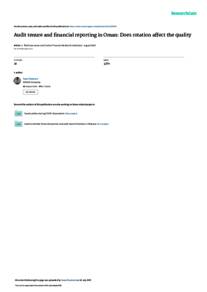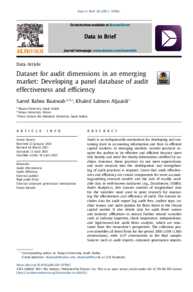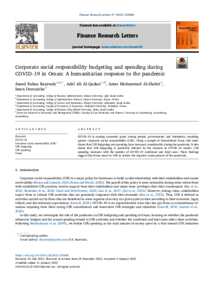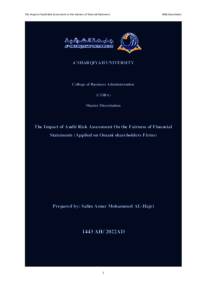Document
Audit tenure and financial reporting in Oman : does rotation affect the quality?.
Identifier
DOI: 10.22495/rcgv6i3c1art2
Publisher
Virtus Interpress.
Gregorian
2016-08
Language
English
English abstract
The purpose of this study is to provide an empirical result concerning the quality of audit under a rotation policy in the Gulf Cooperation Council (GCC). Currently, countries from GCC tend to require the audit firms of public companies to be rotated within four or five consecutive years. This policy received worldwide criticisms which asserted it deteriorates the quality of financial reports – instead of increasing their quality. To achieve this purpose, we use 573 observations from companies listed in the Omani capital market implementing audit firm rotation because Oman is the leading country in GCC. Using discretionary accruals and modified audit opinion to proxy financial reporting quality, we find that audit firm tenure is not significantly associated with low quality financial reports. We also found that audit partner tenure is not positively and significantly associated with high discretionary accruals while it is positively and significantly associated with modified audit opinion. We classify our audit tenure into short and long tenure and find similar findings. Additionally and contrary to previous findings in Oman, we report that audit committee characteristics such as independence, size, financial expertise and number of meetings are not associated with high quality financial reports. Thus, our study contains several contributions to audit tenure debates in general and corporate governance practices in GCC in particular.
Member of
ISSN
2077-429X
Resource URL
Category
Journal articles




